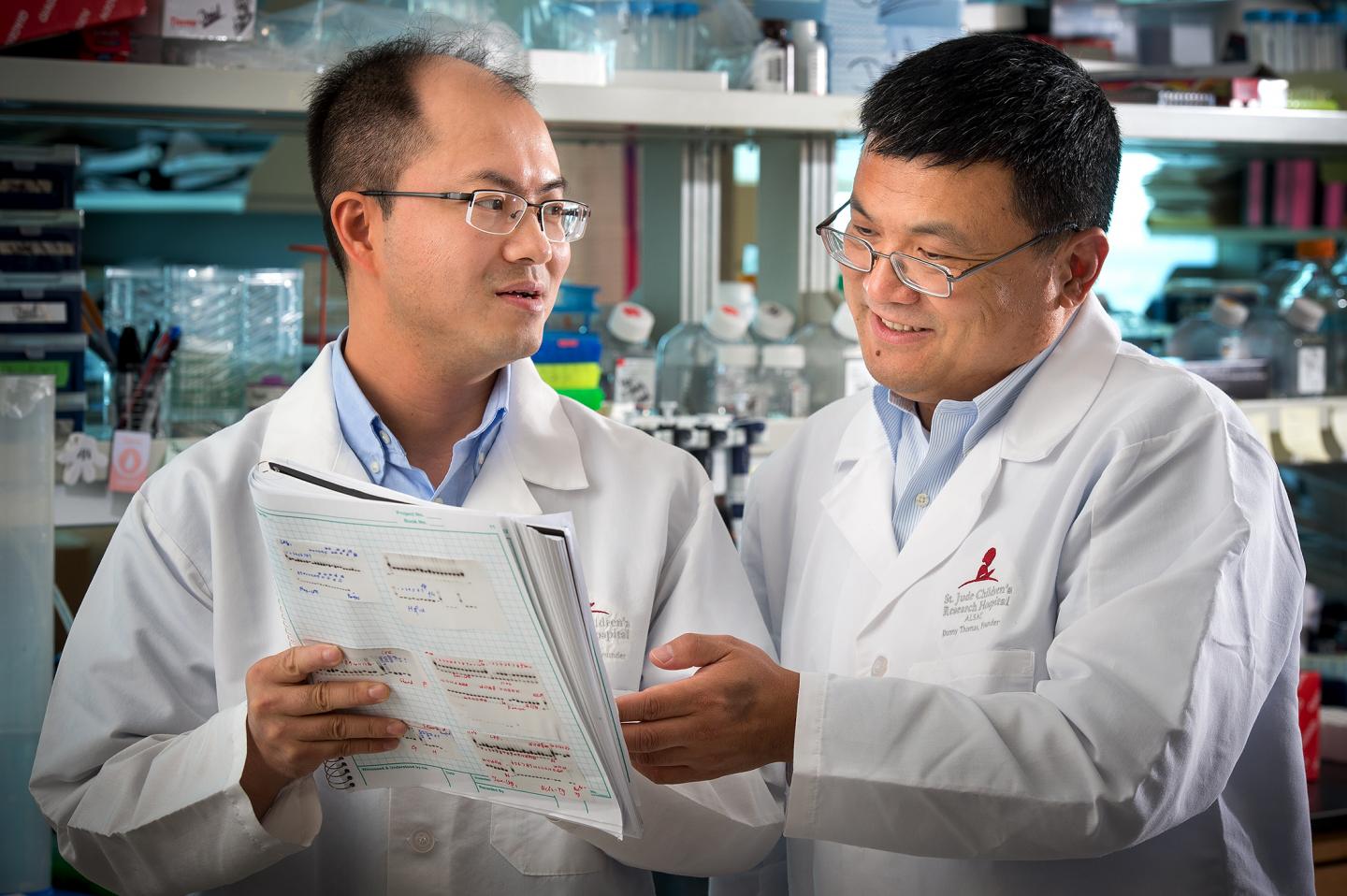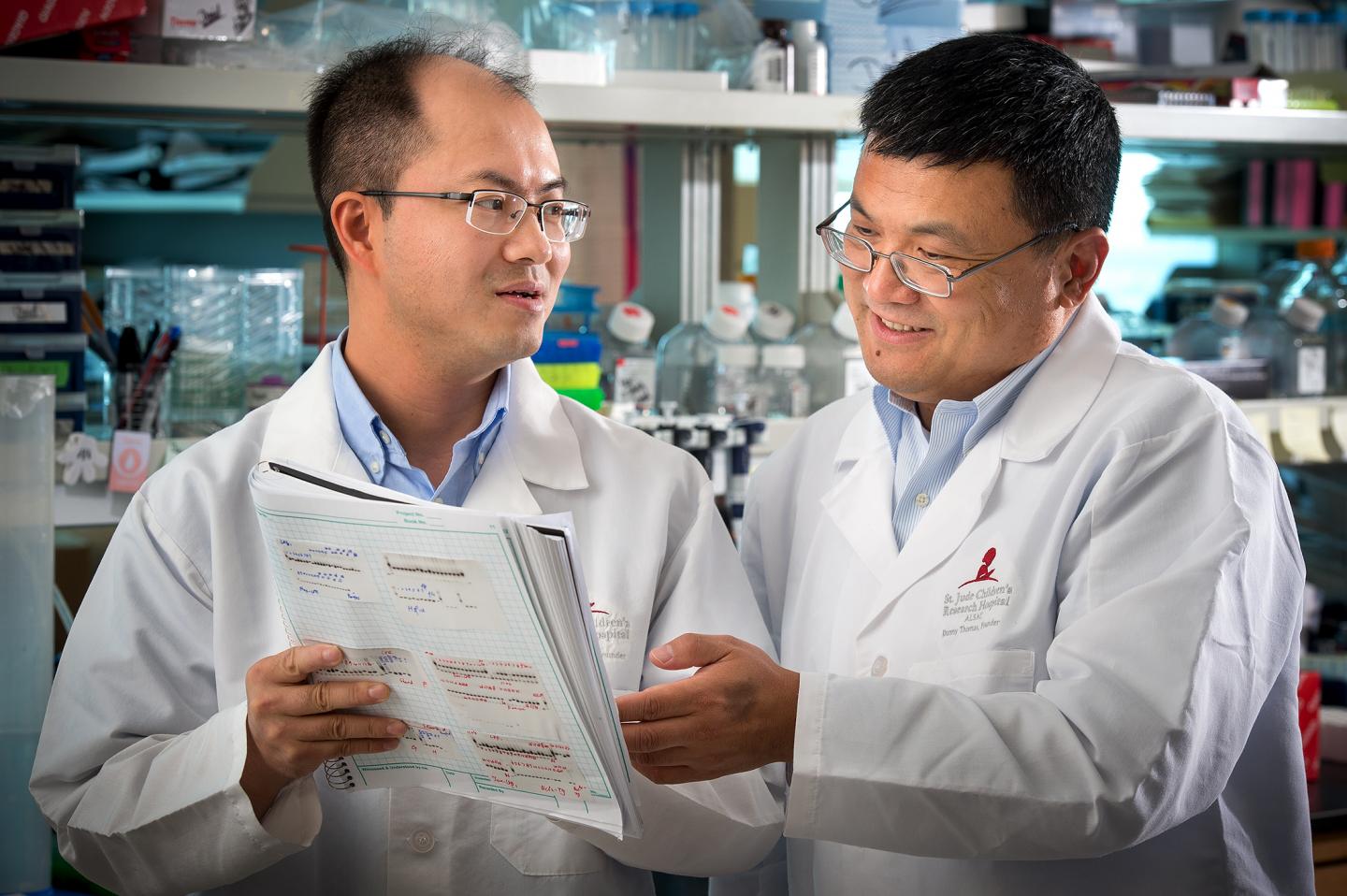
Credit: Seth Dixon / St. Jude Children's Research Hospital
Researchers have evidence that the specialized T cells responsible for maintaining a balanced immune response are vulnerable to exhaustion that disrupts normal functioning and may even contribute to allergic reactions. St. Jude Children's Research Hospital scientists led the study, which appeared today as an advance online publication in the scientific journal Nature.
The report is believed to be the first to suggest that regulatory T cells are subject to the functional exhaustion that also plagues conventional T cells that fight infectious agents and tumor cells. Regulatory T cells are a small population of lymphocytes that keep the immune system in check and help to prevent asthma, allergies and autoimmune disorders like multiple sclerosis and lupus.
Investigators focused on the tumor suppressor liver kinase B1 (LKB1), a protein that controls cell growth and metabolism. Working in mice, researchers showed how, at the molecular level, loss of LKB1 in regulatory T cells disrupted cell metabolism and function. The mice developed fatal inflammatory disease and their regulatory T cells showed functional, molecular and other changes characteristic of functional exhaustion. "We know regulatory T cells can be resting or activated," said corresponding author Hongbo Chi, Ph.D., a member of St. Jude Department of Immunology. "Our observations suggest regulatory T cells can also become functionally exhausted when they lose LKB1 signaling."
The results point to functional exhaustion of regulatory T cells as a possible culprit in the immune response associated with allergic reaction, known as the Th2 response. "The research suggests a possible new therapeutic approach to autoimmune disorders that would be designed to boost the function of regulatory T cells by modulating cell metabolism," Chi said.
The research also highlighted the role of metabolism in proper immune function. Deletion of LKB1 in regulatory T cells disrupted metabolic pathways that support the health and function of the mitochondria. Mitochondria produce energy to power cells. "LKB1 connects immunological signals and cell metabolic programs, especially those related to mitochondrion function," said first author Kai Yang, Ph.D., a staff scientist in Chi's laboratory.
Investigators linked the ability of regulatory T cells to dampen the Th2 response in part to the ability of LKB1 to restrain expression of the cell surface receptor PD-1 and possibly other receptors. In conventional T cells, PD-1 helps inhibit their activity and the immune response to prevent undesired immune responses that lead to autoimmune diseases.
But loss of LKB1 led to increased production of PD-1 by regulatory T cells. That increase inhibited the ability of regulatory T cells to suppress the Th2 immune response in mice. Blocking PD-1 activity largely restored the ability of regulatory T cells that lacked LKB1 to suppress the Th2 immune response.
"Our data suggest that PD-1 also inhibits functions of regulatory T cells, thus inhibiting the inhibitor since inhibition is the role of regulatory T cells," Chi said. Researchers also found evidence that LKB1 helped to control the Th2 response through additional processes. For instance, LKB1 also helped to repress cell surface markers on immune cells called dendritic cells that fueled the allergic reaction. Loss of LKB1 by regulatory T cells was also associated with increased levels of signaling molecules or cytokines associated with the Th2 immune response, Kai said.
Researchers filled in other details about the selective role of LKB1 in regulatory T cells, including that the molecule unexpectedly works through the Wnt signaling pathway to adjust regulatory T cell function. LKB1 is known to work through different pathways, primarily the mTORC1 and AMPK signaling pathways, in conventional T cells and other settings.
###
The other authors are Daniel Bastardo Blanco, Geoffrey Neale, Peter Vogel, Sharad Shrestha, Sherri Rankin, Lingyun Long and Anil KC, all of St. Jude; Julian Avila and Clary Clish, both of the Broad Institute of MIT and Harvard University, Cambridge, Massachusetts; and Chuan Wu, of Brigham and Women's Hospital, Harvard Medical School, Boston.
The research was funded in part by grants (AI105887, AI101407, CA176624, NS064599) from the National Institutes of Health; the American Asthma Foundation; and ALSAC, the fundraising and awareness organization of St. Jude.
Media Contact
Corey Carmichael
[email protected]
901-595-0222
@StJudeResearch
http://www.stjude.org
Related Journal Article
http://dx.doi.org/10.1038/nature23665





